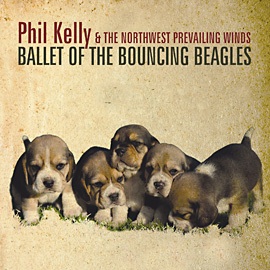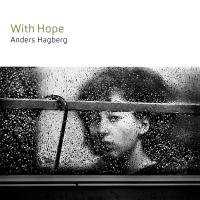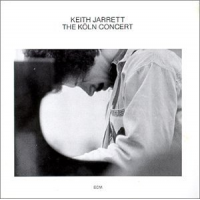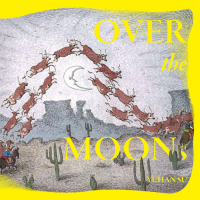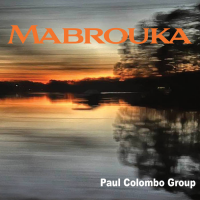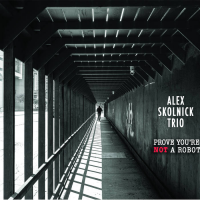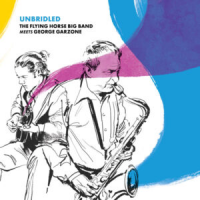Home » Jazz Articles » Multiple Reviews » High Octane Free Improv: Adam Caine Trio & Vinny Golia/D...
High Octane Free Improv: Adam Caine Trio & Vinny Golia/Damon Smith/Weasel Walter
 Adam Caine Trio
Adam Caine Trio
Thousandfold
No Business
2009
Thousandfold is Brooklyn-based guitarist Adam Caine's debut as a leader; he's worked with Soundpainting composer Walter Thompson in addition to leading his own quartet, quintet, and the trio heard here. He's joined on these eight improvisations by regular conscript, drummer John Wagner, and bassist Tom Blancarte. The unaccompanied opening to "Castros" provides a good space in which to view Caine's approach to the guitar. It begins with blocky, almost Thelonious Monk-like cadences (albeit fuzzed-out and distorted) before slowly piling arpeggios contoured by delay and seasick volume pedal actions. With an array of tools and a significant amount of electricity, not to mention the skating rhythm of Blancarte and Wagner, it would be easy to imagine Caine taking off on nervy flights. However, there's a sense of introspection beneath his overtone-laden chunks as he investigates phrase logics before completely unspooling them.
That's not to say there isn't a fair amount of jarring music here—the opening "Outer Church" quickly moves from jagged midrange tweak to sludgy undertow, the leader alternately hunkering in low blats, blues-rock charge and metallic crunch as bass and percussion surround with a mutable surge. "Ride the Tiger" is in homage to bassist-composer Adam Lane, who Caine has worked with. In comparison to some of the dirtier slogs on the set, this piece is almost "clean," darting fistfuls of sounds and top-heavy peals skimming Wagner's Sunny Murray-like churn and Blancarte's supple pizzicato outlines. "Invisible Kingdom" plies fullness and thinness, col legno bass rattle and snare chatter a shifting backdrop for brittle clusters and spiky repetition. Not quite "free jazz" or "free rock," Thousandfold is certainly scorching.
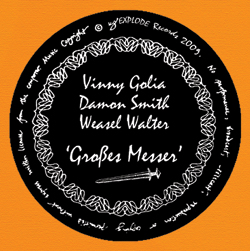 Vinny Golia/Damon Smith/Weasel Walter
Vinny Golia/Damon Smith/Weasel Walter
Grosses Messer
ugExplode
2009
Drummer and bandleader Weasel Walter has spent time leading guitar-heavy electrified spazz-improv units under the Flying Luttenbachers moniker, not to mention the Masayuki Takayanagi-inspired Plane Crash (ugExplode, 2009, with guitarist Henry Kaiser and bassist Damon Smith). But just as much of his discography centers on taking free improvisation to its densest extremes. One of the last sessions that Walter cut while living in the Bay Area, before his recent relocation to Brooklyn, was this power trio with Smith and reedman Vinny Golia, Grosses Messer ("Large Knives"). Golia's recordings of late have tended to focus on spare, moody chamber improvisation or huffing explorations of breath's lower depths. An excellent composer to boot, it has been some time since his lung power has been captured in a raucous set of free playing. "Plancon a Picot" finds Golia on bass saxophone, digging in with wide swaths of gaudy reed-paint as Smith yanks and pummels an amplified upright bass. Rare indeed is the recording where Weasel Walter's particle barrage is nearly overpowered by masses of air and string. That's not to say Golia's blowing isn't without a discernible sense of phrasing—on the contrary, his sweeping clear-cuts of saxophony have a chugging relentlessness.
Smith and Walter are positively furious on "Murder-Hole," gritty arco and pummeling triplicate gallop displaying a fat lilt, while Golia's possessed saxello trills punch holes in coagulation. There's a crazed dance to "Butterknife," country-punk at light-speed mated with buzzing piccolo saxophone, Golia riding high above the thrash. Honest-to-goodness timekeeping makes an appearance on "Mercygiver" with meaty pizzicato and Walter's hyperactive take on drummer Rashied Ali's barnstorming free-bop. Though amazingly cutting, the soprillo doesn't exactly fill in as much area as a bass sax. Only one piece, "Voluge," features tenor, on which Golia's hard-bitten lyricism comes through. But there's more than enough out-front excitement and manic facility at the low end to make pieces like "Lance, Bill and French Dirk" sing in overdrive, a boppish snatch even appearing during an unaccompanied bass saxophone blast. Despite a few abrupt edits, this limited-edition disc is recommended listening for those who like their improv in the red.
Tracks and Personnel
Thousandfold
Tracks: Outer Church; Ride the Tiger; Castros; Thousandfold; The Howl; Invisible Kingdom; Eschatology; Human Body.
Personnel: Adam Caine: electric guitar; Tom Blancarte: bass; John Wagner: drums.
Grosses Messer
Tracks: Plancon a Picot; Morning Star; Murder-Hole; Butterknife; Motte-and-Bailey; Mercygiver; Voulge; Siege Tower; Lance, Bill and French Dirk; Ranseur.
Personnel: Vinny Golia: bass, tenor, saxello and piccolo/soprillo saxophones; Damon Smith: bass; Weasel Walter: drums.
Tags
PREVIOUS / NEXT
Support All About Jazz
 All About Jazz has been a pillar of jazz since 1995, championing it as an art form and, more importantly, supporting the musicians who make it. Our enduring commitment has made "AAJ" one of the most culturally important websites of its kind, read by hundreds of thousands of fans, musicians and industry figures every month.
All About Jazz has been a pillar of jazz since 1995, championing it as an art form and, more importantly, supporting the musicians who make it. Our enduring commitment has made "AAJ" one of the most culturally important websites of its kind, read by hundreds of thousands of fans, musicians and industry figures every month.



